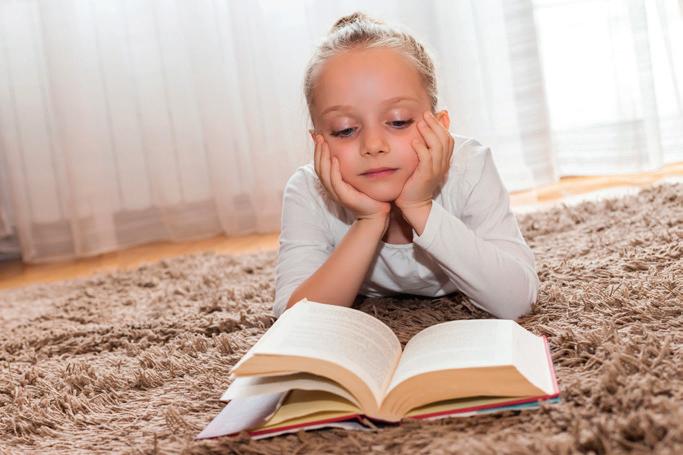
2 minute read
Twice-Exceptional And
“Your child is gifted and needs special education?” Many parents are all too familiar with this kind of comment. You may hear it from friends. From family. Even from some teachers and doctors.
Yet there are lots of people who have exceptional ability in some academic areas and significant learning difficulties in other areas. Educators use a special name to describe students who qualify for gifted programs as well as special education services. These children are referred to as “twice-exceptional” learners.
Advertisement
“Some organizations estimate that there are hundreds of thousands of twice-exceptional learners in U.S. schools.”
Consider Tessa: She’s a bright, insightful and enthusiastic fourth grader who is reading at a 12th-grade level. At the same time, she can’t pass her spelling tests, and writing is a huge struggle.
Consider Jamie: At 16, he knows everything about the Civil War, writes beautifully, and can talk endlessly about politics. Yet he needs a calculator to help him with even the most basic math. And he couldn’t tie his shoes until he was in seventh grade.
Consider Steven Spielberg: He’s one of the most successful filmmakers of all time, but reading has been a lifelong struggle for him because he has dyslexia.
TWICE-EXCEPTIONAL AND EASILY OVERLOOKED
Some organizations estimate that there are hundreds of thousands of twice-exceptional learners in U.S. schools. But there are no hard numbers because so many of these students are never formally identified as being gifted, having a disability or both.
Twice-exceptional children tend to fall into one of three categories. These categories help explain why students often go through school without the services and stimulation they need:
• Students whose giftedness masks their learning and attention issues. These kids score high on tests for giftedness but may not do well in gifted programs. These students use their exceptional abilities to try to compensate for their weaknesses. But as they get older, they may be labeled as “underachievers” or “lazy” as they fall behind their gifted peers.
• Students whose learning and attention issues mask their giftedness. Learning and attention issues can affect performance on IQ tests and other assessments for giftedness. For example, since many of these tests require language skills, kids with language-based challenges may not perform well. These kids may be placed in special education classes, where they become bored and possibly act out because they aren’t being challenged enough. Some of these children are identified, wrongly, as having emotional problems.
• Students whose learning and attention issues and giftedness mask each other. These kids may appear to have average ability because their strengths and weaknesses “cancel each other out.” Consequently, these students may not qualify for gifted programs or for special education programs.
IDENTIFYING TWICE-EXCEPTIONAL STUDENTS
Federal law protects students with disabilities. School districts are required to look for children with disabilities and provide special education to those who qualify for it. Gifted education is a different animal.
There is no federal requirement for gifted education. Decisions about gifted programming are made at the state and local level. Few states specify what these services should be and which talents should be nurtured. This is often left up to individual school districts. And funding for gifted services can vary greatly from district to district.
Identifying twice-exceptional students tends to be a low priority. Often it takes a proactive parent to push for testing for both giftedness and learning and attention issues. But sometimes teachers are the first to raise the possibility.
Here are some early tip-offs that your child could be a twice-exceptional learner:
• Extraordinary talent in a particular area, such as math, drawing, verbal communication or music
• A significant gap between your child’s performance in school and his performance on aptitude tests
Continued on next page







